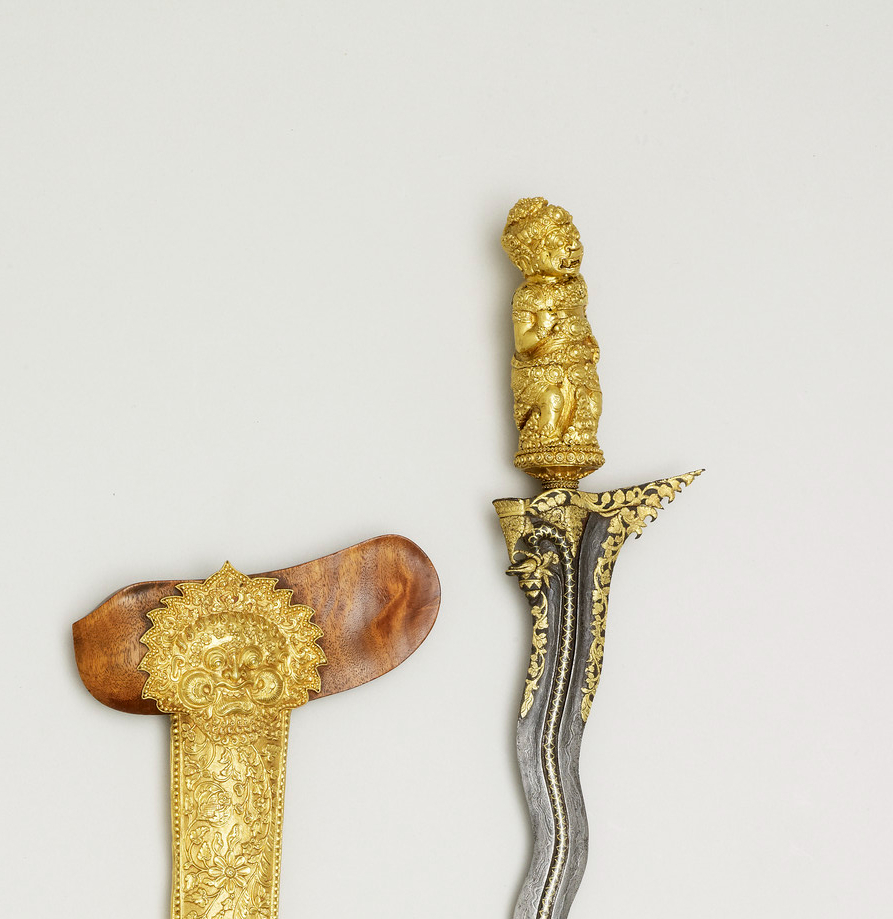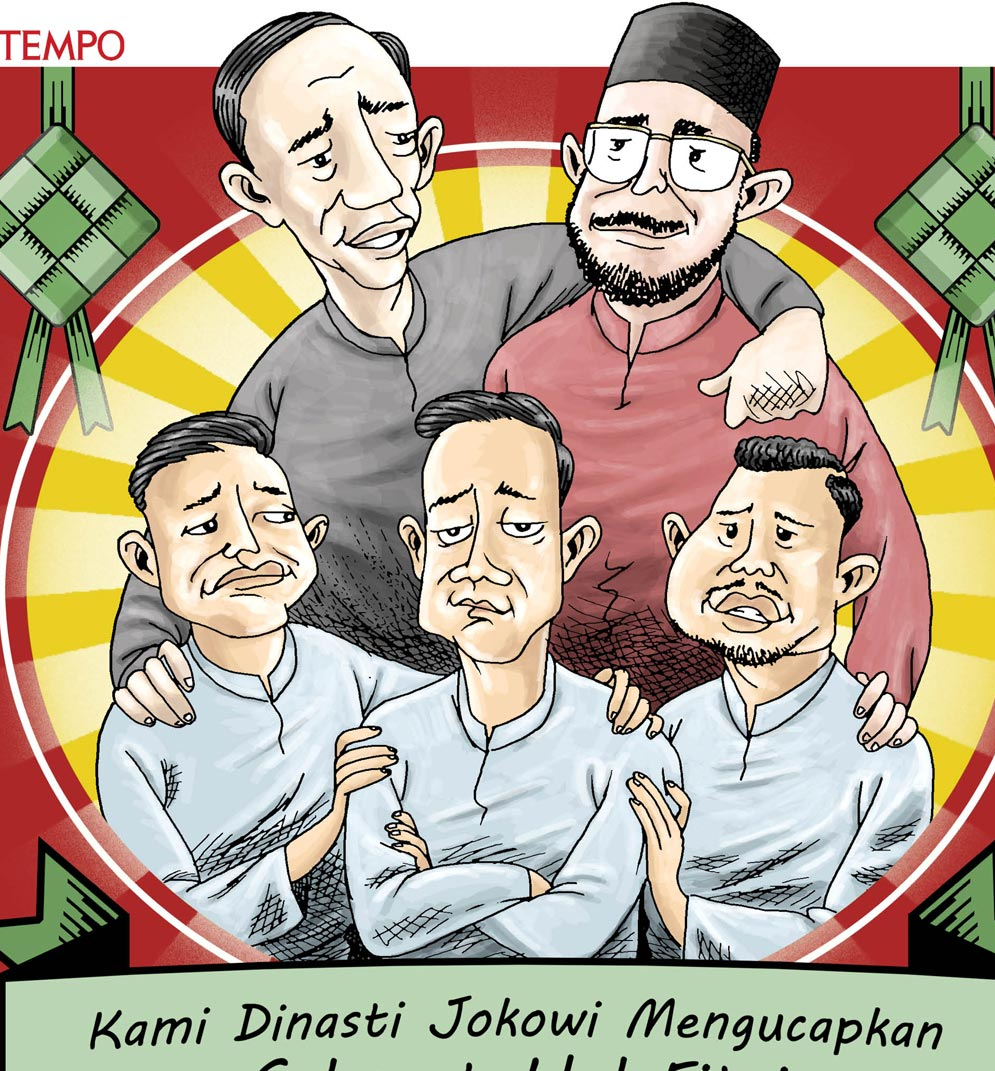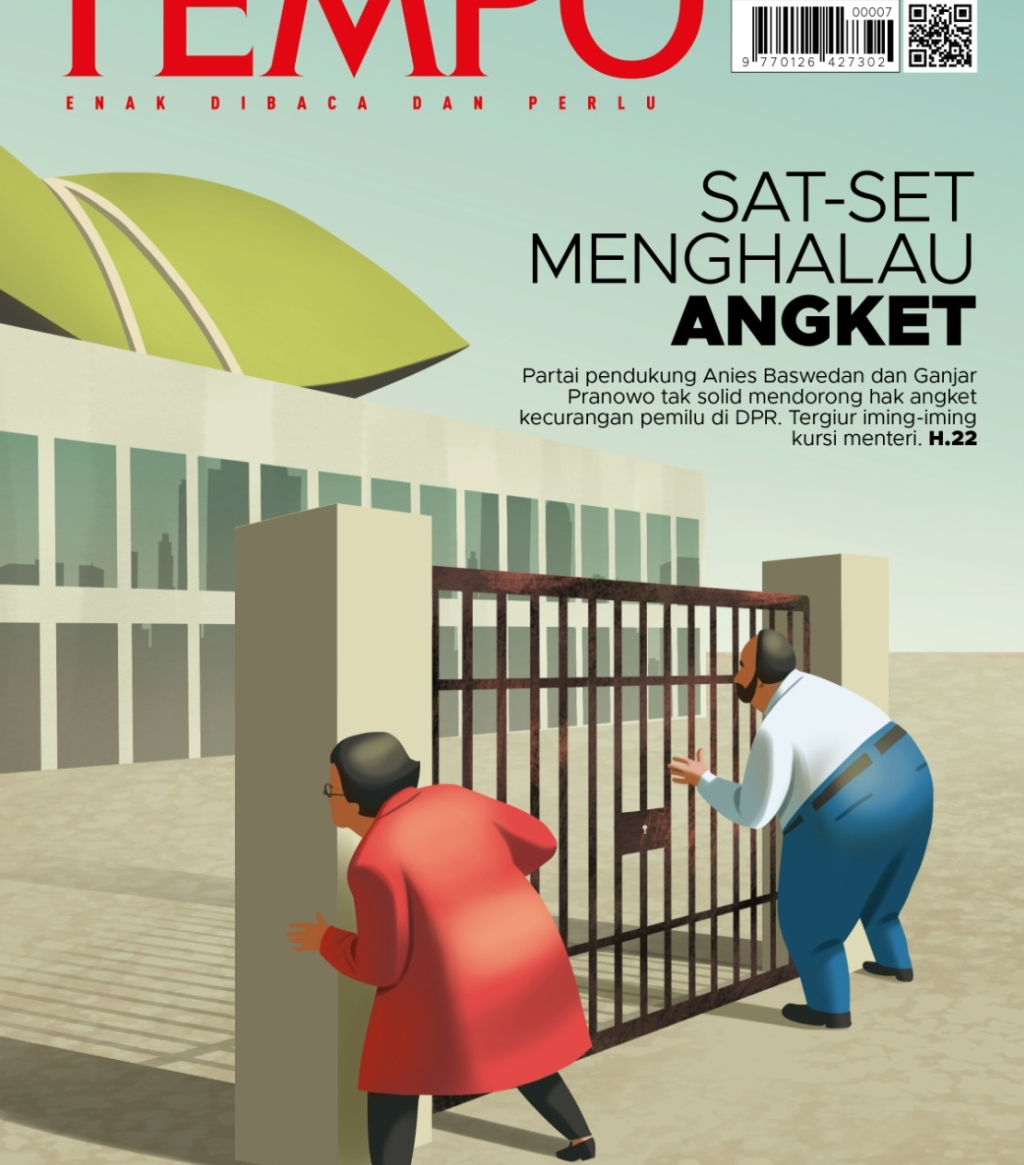Inem
A Short Story by Pramoedya Ananta Toer
Inem is my friend, one of my female friends. She is eight years old – and that makes her two years older than me. She is no different from any of my other friends. But if there is anything different, it’s this. People think she’s beautiful for the young girls in our village. People are happy when they see her. She is polite, not spoilt, clever and hard working. These things quickly make her well known in the surrounding kampongs. Inem is just right to be my friend.
And one time as she is boiling water in the kitchen, she says to me, “Gus Muk, I’m going to be married.”
“Go on?” I say.
“Yes. The proposal arrived last week. Mother and father and my other relatives have accepted the proposal.”
“How wonderful to become a bride!” I reply joyfully.
“How wonderful. Indeed! They are going to buy me beautiful clothes. I will be be dressed up in bridal clothes, flowers, make up, mascara and eye liner. How wonderful. How wonderful!”
And that is how it turns out. Late one afternoon, her mother arrives to see my mother. At the time Inem was living with my parents. Everyday her jobs are to help cook in the kitchen, and to keep my siblings and me company while we play.
Little Inem’s mother earns a wage making batik cloth. The women in our kampong, if they’re not working in the rice fields, are making batik cloth for a job. Some make batik cloths for dresses, and others make smaller batik cloths for head scarves. The ones who are poor make batik scarves, because they can finish scarves faster and get paid faster too. And Inem’s mother earns her income from making batik scarves. She receives the cloth and wax from the Green Shop, her employer. For every two she finishes she receives a wage of one and a half cents. On average a person can make eight to eleven headscarves a day. ///
She receives the cloth and wax from her employer, The Green Shop. For every two she finishes, she earns one and a half cents. On average, someone can make eight to eleven headscarves a day.
Inem’s father cockfights and spends his days just gambling on cockfights. When he loses, his rooster is taken away by the winner, and he has to pay one guilder, or at least seven-five cents.
When he isn’t cockfighting, he’s playing cards with the neighbors, betting a cent each time. Sometimes, Inem’s father is away for a month or weeks at a time, traveling around by foot. When he returns home, it means he has some money in hand.
One time mother tells me that Inem’s father’s main occupation is highway robbery, out in the middle of the teak forests between our town Blora, and the coastal town Rembang. I was in first grade at the time, and I heard all sorts of tales about banditry, robbery, and murder. Those stories, along with the tales from my mother, make me scared of Inem’s father.
Everyone knows Inem’s father is a criminal. Still, no one dares report him to the police. And no one can prove he’s a criminal. As a result, he’s never been caught by the authorities. In fact, nearly all of Inem’s uncles and aunts on her mother’s side work in law enforcement. Some are inspectors of police first class. Even Inem’s father has been a policeman once. But he was dismissed for bribery.
II
When Inem’s mother visits my mother, Inem is boiling water in the kitchen. I join them. The guest, my mother, and me sit in the low red divan.
“Milady,” says Inem’s mother, “I’ve come to ask for Inem back.”
“Why are you asking for Inem back? Wouldn’t it be better if she stays here? She can learn to cook, and you won’t need to spend anything on her,” my mother replies.
“But, milady. After the harvest is in I plan to marry her off.”
“What?” exclaims my mother, surprised. “Marry her off?”
“Yes, milady. She’s a maiden now—eight years old,” says Inem’s mother.
Now my mother laughs. Seeing my mother laugh, our guest is bewildered.
“Eight years old is still a child, isn’t it?” my mother asks then.
“We’re not from the noble class, milady. I am thinking she’s already a year past due. Asih over there married her daughter two years younger than mine.”
My mother tries to convince her, but Inem’s mother has other reasons.
Finally our guest speaks again, “I think it’s lucky someone is asking. If we don’t accept this proposal, maybe no one else will ask for Inem. How embarrassing to have a spinster daughter. And perhaps she’ll be able to help provide for our daily needs.”
My mother does not respond. Then she turns to me, and says, “Fetch the betel nut box, and brass spittoon.”
So I go fetch the betel nut set, and the brass spittoon.
“And what does Inem’s father say?”
“Oh, Inem’s father agrees. Especially since Markaban is from a wealthy family, he’s their only child. He’s now started trading livestock, in Rembang and Cepu, Medang, Pati and Ngawen, and even here in Blora,” says Inem’s mother.
My mother appears pleased with this news, a joy I can not understand the reason for. Then she calls for Inem who is arranging pots in the kitchen. Inem arrives. My mother asks. “Inem, are you willing to be married?”
Inem lowered her head. She is deeply respectful towards my mother. Never once have I heard her protest. It is not uncommon for someone to lack the power to reject to anything said to them.
At that moment I see Inem light up with a radiant smile. She often looked like that. Offer her anything that pleased her, even a little, and she would beam.
But saying thank you is something she is not accustomed to. In our interactions in the village among families of humble means, the phrase ‘thank you’ is foreign still. Only the radiance that shines from someone’s faces upon hearing it finds its way.
“Yes, milady,” Inem whispers, almost inaudibly.
Then Inem’s mother and my mother chew some betel nut. My mother herself does not like chewing betel nut often. She indulges only when there are female guests. From time to time she spits into the brass spittoon.
“Missus Inem,” says my mother, as Inem goes back to the kitchen, “we ought not to marry off small children.”
Inem’s mother is surprised to hear what my mother says, but she does not say a word. Her eyes do not appear to question either.
“I was married at eighteen,” my mother adds.
Inem’s mother’s surprise recedes. She isn’t surprised anymore but she still does not say anything.
“Missus Inem, we ought not to marry off children,” my mother repeats.
And Missus Inem is again surprised.
“Otherwise their offspring will be deformed.”
Missus Inem’s surprise fades again.
“Yes, milady,” she says, finally, coolly, “my mother was married at eight.”
My mother pays no heed, and continued, “Not only will their body be deformed, their health will also be imperiled.”
“Yes, milady, but our family is known for their long lives. My mother is still alive, even though she’s over 59. And my grandmother is still alive. I would say she’s 74, still robust, and strong enough to pound corn.”
My mother remains unmoved, persisting, “Especially if the husband is still a child.”
“Yes, milady, but Markaban is seventeen.”
“Seventeen! Mr. Mamuk married me when he was thirty.”
Inem’s mother falls silent. She continues to manipulate the tobacco wedged between her lips. Sometimes she moves it to the right, then to the left. And sometimes she rolls it to clean her charcoal-darkened teeth.
Now my mother has no reason to resist her guest’s desire any longer. “If it is your wish to marry her off, well at least I hope that Inem finds someone good who can take care of her. May she find her true match.”
Inem’s mother leaves for home still rolling the tobacco in her mouth.
“I do hope that no accidents befall the little one.”
“Why would an accident befall her?” I ask.
“Nothing, Muk. It’s nothing.”
Then my mother changes the subject. “When a family is in need and the child is so young, marriage seems like the only way.”
Fifteen days after her visit, Inem’s mother returns to retrieve her child. She seems pleased when Inem does not protest at being taken away.
And as Inem is about to leave from our home, thereafter never to be a part of our family, she speaks to me at the kitchen door. “It’s alright, Gus Muk. I’m going home, Gus Muk,” she says softly.
She has always spoken softly. And speaking softly is one of the customs in our small town to show deference. She leaves with the joy of a child who is to receive new clothes.
III
After that Inem doesn’t live at our house anymore. I feel the loss of my close friend keenly. And from then on it isn’t Inem who takes me to the bathroom to wash my feet at night before going to bed. It is my foster sister.
Sometimes I deeply long to see Inem. Often as I lie in my bed I think about the moment her mother dragged her away by the hand. Both of them leaving our house. Inem’s house is behind ours, only a wooden fence separating us.
She has been gone for a month. I often visited her house to play together, and my mother was always angry when she found out I was there. She always say, “What skill can you possibly gain from Inem’s house?”
And I never answered. Mother always has a reason for scolding me. Each of her utterances a thick wall that could not be breached by any excuse. So it was better for me to remain silent. As she often said, “Why do you play with her? Aren’t there lots of other children you can play with? And as well, she’s a girl who will soon be married.”
But still I sneak away and go over to her house. It is truly puzzling sometimes why prohibitions exist, and why they are important only to be violated. And in breaking those rules, I feel a sense of enjoyment. For children like me at that time—oh, how many restrictions and taboos are imposed on us.
Yes, it seemed as if everything in this world is watching us, not permitting anything we do or desire. Involuntarily, we children feel that this world is truly meant only for adults.
IV
Then the wedding day arrives. Five days before the wedding, Inem’s family busies themselves cooking feasts and food in the kitchen. This makes me visit their house even more frequently.
A day before the wedding, Inem is dressed up beautifully. Mother instructs me to take five kilos of rice and a donation of coins to their house. That evening we children gather around admiring her. The baby hairs on her forehead, eyebrows, and fringe have been shaved off and shaped neatly and darkened with kohl make up.
Her small bun is enlarged with a hairpin decorated with paper flowers called “sunduk mentul“. Her outfit is made of satin silk, an expensive fabric from the sprawling town of Solo. Everything is rented from a Chinese vendor near the town square. Even the gold rings and bracelets are just rentals.
The house is decorated with banyan tree and young coconut leaves. Tricolored flags crisscross on every wall within a circle of palm leaves. Even the electric poles are adorned with tricolored ribbons.
Mother herself arrives and helps with the preparations. But not for long. Mother rarely does anything like this, unless it’s for the closest neighbors. She is back home again in less than an hour.
And at that moment a delivery arrives from Inem’s future husband: a sack of feasts, a goat, a sack of rice, a packet of salt, a sack of husked coconuts and half a bag of sugar.
When the groom arrives to be united with the bride, Inem, sitting on the dais, is escorted by someone. The groom has already reached the pavilion. Inem bows and kneels to her prospective husband then washes his feet with scented flower water from a brass basin.
Then the couple are sashed together and led together to the dais. At that moment the attendees exclaim together, “One child becomes two. One child becomes two. One child becomes two.”
The women watching seemed overjoyed as if they themselves are about to receive a delight.
That’s when I see Inem crying so hard that her makeup is ruined, and tears streak her beautiful face. At home I ask mother, “Why was the bride crying, ma?”
“If the bride cries it’s because she is remembering her long-departed ancestors. Their spirits also attend the ceremony. And they rejoice that their descendants have married safely,” replies mother.
Her words never occur to me at the time. But later I understand why she is crying. Inem needs to go to the toilet but she doesn’t dare say so.
V
The excitement fades into cold emptiness. No more guests arrive bearing gifts. The house returns to its former state. And when the quarrels erupted, Inem’s father has already left Blora. Inem’s mother and Inem herself continue making batik – day and night – after the wedding.
When people visit their house at three in the morning, they are often found still at their batik work, the kitchen emitting swirling candle smoke around them. Also, quarrels are frequently heard in the house.
Once while I was sleeping in bed with mother, loud shouting woke me up: “No! No!”
It is still night-time. The cries are repeated, and accompanied by pounding on the door and banging sounds. I know it is Inem’s voice. I recognize it.
“Ma, why is Inem shouting?” I ask mother.
“They’re fighting. Hopefully no harm comes to the little child,” she says, but she does not explain any further.
“Why would harm come to her?” I press.
Mother refuses to provide an answer. And then when the commotion ceases, we fall asleep again. Those kinds of shouts are almost certain to happen every night. Shouting. More and more shouting. Every time I hear it I ask mother. But she will not answer properly. Sometimes she will just sigh, and say, “Poor child, so young.”
And one day Inem arrives at our house. She immediately seeks out my mother. Her face is pale, bloodless. Before saying anything, she expressed her plea with tears – polite tears.
“Why are you crying, Inem? Are you fighting again?” mother asks.
“Madam,” Inem says, “I hope,” through her sobs, “that you will accept me here again like before.”
“But aren’t you married, Inem?”
And Inem cries again. Through her tears, she says, “I can’t bear it, madam.”
“Why, Inem? Are you unhappy with your husband?” mother asks.
“Madam, have mercy on me. Every night, he just wants to wrestle, madam.”
“Couldn’t you say, ‘Please, don’t do that,’ to him?”
“Inem is scared, madam. He’s so big. And when he wrestles hard, I can’t breathe. Won’t you accept me again?” she pleaded pitifully.
“If you didn’t have a husband, Inem, of course, I would accept you. But you do have a husband,” says mother.
And Inem cries again upon hearing mother’s words. “Milady, I don’t want to a husband.”
“Even if you don’t want one, you do have one still, Inem. Maybe in the future your husband will become better, and you can both live happily. Didn’t you want to get married before?” says mother.
“Yes, milady…but, but…”
“Even so Inem, a woman has to be devoted to her husband. If you’re not devoted to your husband you will be cursed by your ancestors,” mother says.
Inem cries still harder, unable to utter a word.
“Now, Inem, promise. You will always provide food for your husband. If you’re idle, you have to pray to God for his protection. You must promise to wash his clothes and massage him when he’s worn out from seeking a livelihood. You must massage his body if he catches a chill.”
Inem still does not respond. Only her tears continue to fall.
“Now, go back to your husband. If you leave your husband like this things won’t turn out well for you either now or in the future,” mother added.
“Yes, milady,” she says obediently.
Slowly, she stands and walks back home.
“Poor thing. So young,” says mother.
“Ma, does father ever wrestle you?” I ask.
Mother carefully observes my eyes. Then her scrutiny dissolves and she smiles.
“No,” she says, “your father is the best person in the whole world, Muk.”
Then mother goes to the kitchen to fetch a hoe and works in the field with me.
VI
A year passes without much notice. Then once again Inem arrives. A year has made her much bigger than before. Clearly, she has grown into adulthood, even though she is only nine. As usual she goes straight to mother, sits on the floor with her head bowed, and says, “Milady, now I no longer have a husband.”
“What?”
“I am not married anymore.”
“So, you’re a widow now?” mother askes.
“Yes, milady.”
“Why did you divorce him?”
She does not answer.
“Weren’t you devoted to him?”
“I think I have always been devoted to him, milady.”
“Do you massage him when he comes home tired from looking for a livelihood?” mother inquired, probing.
“Yes, milady, I followed all the instructions.”
“Why did you divorce, then?”
“Milady, he often beat me.”
“Beat you? A child this young was beaten?”
“I was very devoted, milady. And when he beat me, and I was pain, is that devotion, milady” she asks seeking clarification.
Mother falls silent. Her eyes study Inem.
“Beaten,” whispers mother, softly.
“Yes, milady – beaten. Just like my mother and father used to beat me.”
“Perhaps you were not devoted enough to him. A husband wouldn’t dare to beat his wife if she were truly devoted.”
Inem does not respond. She changes the direction of the conversation, “Will you take me back?”
Mother hesitates to respond. Firmly she says, “Inem, you are a widow now. There are many important men here. Wouldn’t it be improper for other eyes to look on you?”
“Is that because of me, milady?”
“No, Inem, because it would not be proper.”
“Wouldn’t be proper, milady? Because it wouldn’t be proper, I can’t be here?”
“Yes, that’s the way it is, Inem.”
VII
The widow does not say a word. She stays seated on the floor, seemingly without any intention of leaving her position. My mother approaches her. Pats her shoulders in consolation. “Now, Inem, it’s better you help your parents earn a living. It’s a such a shame, but I cannot take you back again.”
Two teardrops cling to the corners of the small woman’s eyes. She rises. Drags her feet dejectedly as she leaves our house, heading towards her parents’ home. After that she rarely appears outside her own house.
And then, the nine-year-old widow – because she is a burden only on her parents’ household – can be beaten by anyone who wants to, her mother, her younger brother, her uncle, her neighbor, her aunt. Even so Inem never again comes to our house.
Toer, Pramoedya Ananta. (1994). Inem. In Cerita dari Blora: Kumpulan Cerita
Pendek [Stories From Blora: Collection of Short Stories] (pp. 39-52). Jakarta: Hasta Mitra. https://archive.org/details/ceritadariblora Retrieved from https://ruangsastra.com/32072/inem/ and https://medium.com/@arifinung/cerpen-pramoedya-ananta-toer-inem-bc986e98f7a8 (Accessed December 1, 2023)
Featured image credit: Kris and sheath early nineteenth century.
Iron, gilt, hardwood | 59.5 x 15.1 x 4.5 cm (whole object) | RCIN 62915, Grand Vestibule, Windsor Castle, Java – Kris and sheath (rct.uk)





Leave a Reply